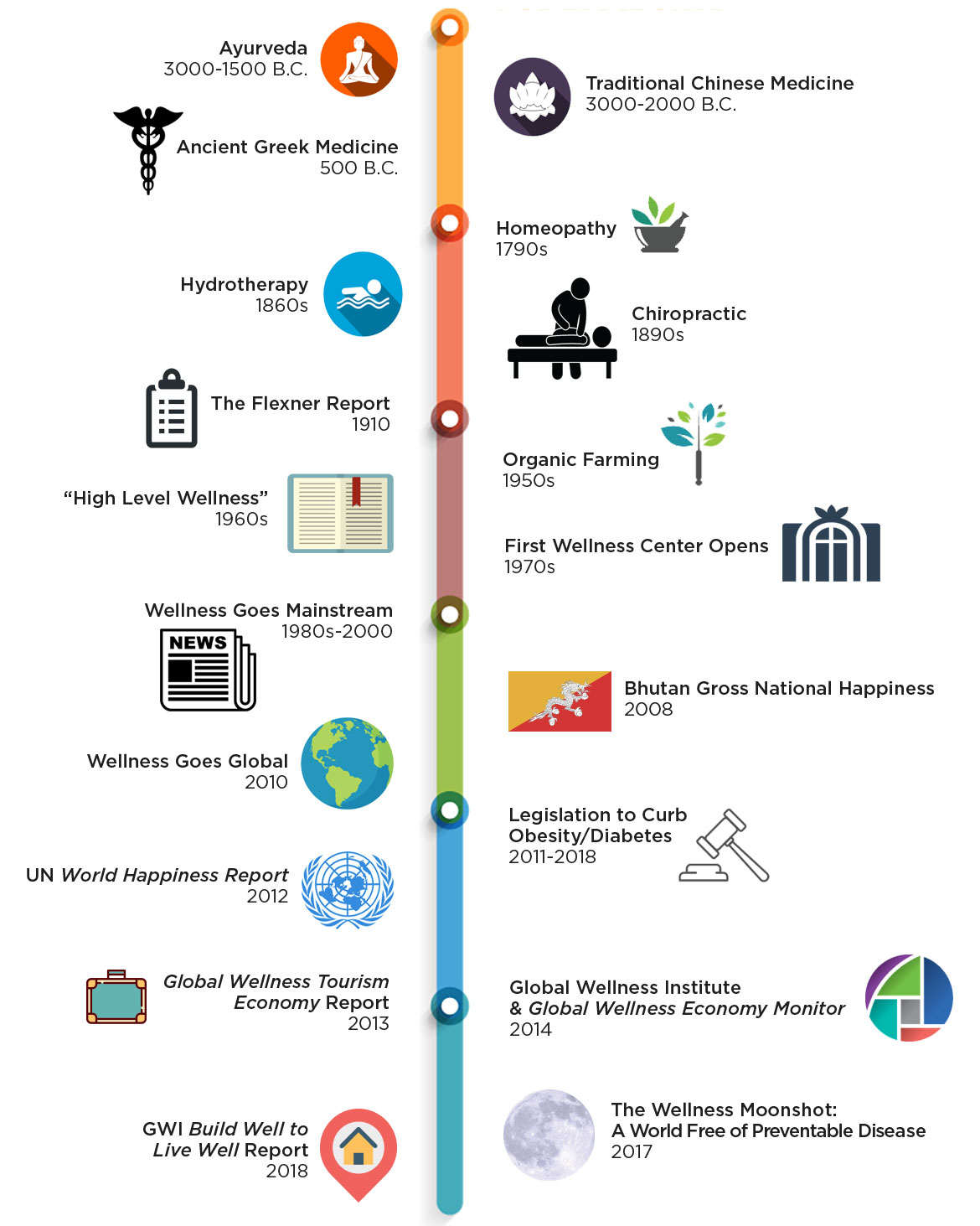History of Wellness Wellness is a modern word with ancient roots. As a modern concept, wellness has gained currency since the 1950s, 1960s and 1970s, when the writings and leadership of an informal network of physicians and thinkers in the United States largely shaped the way we conceptualize and talk about wellness today. The origins of wellness, however, are far older—even ancient. Aspects of the…


























































